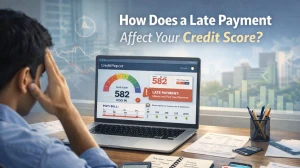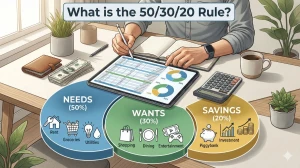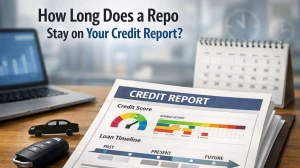
What is a Debt Management Plan? How Do You Manage a Debt Management Plan?
A Debt Management Plan (DMP) is a structured financial approach, often guided by nonprofit credit counseling agencies, to consolidate and simplify unsecured debts for easier repayment within three to five years.
by Kowsalya
Published Aug 09, 2023 | Updated Dec 28, 2023 | 📖 7 min read
What is a Debt Management Plan?
A Debt Management Plan (DMP) is a voluntary agreement between an individual and a consumer credit counseling agency aimed at assisting in the repayment of high unsecured debts, such as credit cards and medical bills.
The process involves the credit counseling agency negotiating with creditors on behalf of the individual to establish a structured plan. In this plan, the individual makes a single monthly payment to the agency, covering all minimum payments and an agency fee.
The agency then distributes these payments among the creditors. The goal is to gradually pay off the debts within three to five years, minimizing interest and fees, and avoiding default, collection calls, or bankruptcy.
When choosing a DMP, factors such as the types of debts, costs, impact on credit score, and the agency's reputation and certifications should be considered. Noteworthy accredited credit counseling agencies include Cambridge Credit Counseling Corp, Money Management International, InCharge Debt Solutions, GreenPath Financial Wellness, and Apprisen.
How Do You Manage a Debt Management Plan?
Managing a Debt Management Plan (DMP) involves several key steps to ensure its success and your financial stability. Here's a detailed guide on how to manage a Debt Management Plan:
Enrollment Process
- Begin by enrolling in a reputable DMP through a nonprofit credit counseling agency.
- Provide accurate information about your income, expenses, debts, and assets during the initial counseling session.
Budgeting and Financial Assessment
- Work with a credit counselor to create a comprehensive budget that outlines your income, living expenses, and the funds available for debt repayment.
- The counselor will conduct a thorough financial assessment to determine a realistic monthly payment that you can afford.
Credit Card Account Closure
- Understand that one condition of a DMP is closing your credit card accounts to prevent incurring additional debt.
- This step is crucial to demonstrate your commitment to the plan and avoid further financial strain.
Monthly Deposits
- Make monthly deposits to the credit counseling agency, which will be used to pay your creditors according to the agreed-upon schedule.
- These payments are typically consolidated into a single, more manageable monthly payment.
Creditor Communication
- Your credit counseling agency will act as an intermediary between you and your creditors.
- They will negotiate with creditors to reduce interest rates and potentially eliminate late fees or penalties.
Regular Monitoring
- Regularly review your monthly statements from both the credit counseling agency and your creditors to ensure payments are credited accurately.
- Keep track of your progress in reducing debt through these statements.
Adherence to the Plan
- Adhere to the agreed-upon payment schedule consistently. Consistent and on-time payments are essential for the success of the DMP.
- Notify your credit counseling agency promptly if you encounter any financial challenges that may affect your ability to make payments.
Communication with Creditors
- Stay informed about your creditors' responses to the DMP proposal. Some creditors may approve the plan, while others may not.
- If a creditor does not agree to participate, you may need to continue making separate payments to that specific creditor.
Completion of the Program
- Complete the 3-to-5-year DMP program as per the agreed-upon terms.
- Celebrate your success as you become debt-free.
Credit Score Improvement
- As you consistently make on-time payments through the DMP, your credit score may gradually improve.
- Understand that closing credit card accounts and enrolling in a DMP may have temporary effects on your credit score.
Financial Education
- Take advantage of any financial education resources provided by the credit counseling agency.
- Learn valuable budgeting and financial management skills to maintain your financial health post-DMP.
Early Payment Option
- If you come into unexpected funds, inquire about the possibility of paying off your balance early without penalties.
What is the Goal of a Debt Management Plan?
The primary goal of a Debt Management Plan (DMP) is to provide individuals, especially older adults grappling with credit card debt, with a structured and manageable path to financial recovery. Through a DMP, multiple credit card balances can be consolidated into a single, affordable monthly payment. This approach aims to ease financial strain, offering relief by simplifying payments, reducing interest rates, and providing a clear strategy for debt repayment.
The overarching objective is to help individuals become debt-free within a specified timeframe, typically ranging from 3 to 5 years, while minimizing the negative impact on their credit score. By working with credit counseling agencies, individuals can navigate the DMP requirements and find a strategic solution tailored to their unique financial circumstances.
Discover the keys to financial success with MarketsHost diverse range of Finance-related resources, designed to assist both beginners and experts alike.
How to Choose a Debt Management Plan?
Choosing a debt management plan is a crucial decision, and several factors must be considered to ensure it aligns with your financial goals. Here's a detailed guide on how to make an informed choice:
Understand Your Debt
- Identify the types of debt you have, as debt management plans are most effective for unsecured debts like credit cards and medical bills.
- Assess the total amount of debt and the interest rates on each account.
Research Reputable Credit Counseling Agencies
- Look for agencies accredited by reputable industry associations such as the National Foundation for Credit Counseling (NFCC) or the Financial Counseling Association of America.
- Check the agency's licenses, certifications, and affiliations to ensure credibility.
Upfront and Ongoing Costs
- Inquire about enrollment fees to initiate the debt management plan and monthly fees for the duration of your enrollment.
- Compare costs among different agencies to find an affordable option that fits your budget.
Impact on Credit Score
- Understand that enrolling in a debt management plan requires closing credit cards, potentially affecting your credit score temporarily.
- Clarify the agency's approach to minimizing the impact on your credit score over time.
Types of Debt Covered
- Confirm that the debt management plan is suitable for your specific types of debt. It is typically effective for unsecured debts and may not address secured debts like mortgages.
Consultation and Proposal Process
- Schedule consultations with potential credit counseling agencies to discuss your financial situation.
- Evaluate how well the agency understands your debts and finances, and how transparently they explain the debt management plan.
Compare Plans from Different Agencies
- Gather proposals from multiple agencies and compare the terms and conditions of their debt management plans.
- Pay attention to the proposed monthly payment, duration of the plan, and any negotiated interest rate reductions.
Creditor Participation
- Ensure that the agency has a track record of successfully negotiating with creditors.
- Understand the likelihood of your creditors agreeing to the proposed terms.
Track Record and Reviews
- Research the agency's track record and read client reviews to gauge customer satisfaction.
- Look for any complaints or legal actions against the agency.
Alternatives and Considerations
- Explore alternative debt management strategies, such as debt consolidation loans or balance transfers, to compare their pros and cons.
- Consider the agency's approach to handling missed payments and potential issues during the plan.
Transparency and Trustworthiness
- Choose an agency that is transparent about fees, processes, and potential outcomes.
- Trust your instincts and select an agency that instills confidence and communicates clearly.
What Are the Alternatives to Debt Management Plans?
While debt management plans can be effective, they may not suit everyone. Consider these alternatives based on your financial situation:
Debt Consolidation
- Take out a loan to pay off existing debts.
- Fixed payments, potential for lower interest rates, and streamlined debt.
- Requires discipline to avoid new debts.
Debt Settlement
- Negotiate with creditors for a reduced payoff amount.
- Potential for paying less than the total owed.
- Risky, may damage credit score, and not all creditors agree.
Bankruptcy
- Legal process to discharge debts.
- Offers a fresh start; removes the obligation to repay.
- Serious impact on credit; stays on credit reports for years.
What Are the Pros and Cons of Debt Management Plans?
Pros of Debt Management Plans
- Get rid of your debts in five years or less with a structured plan.
- Simplify your finances by making just one monthly payment to the credit counseling agency.
- Timely payments could gradually improve your credit score.
Cons of Debt Management Plans
- You'll likely lose access to your credit cards to prevent more debt.
- Opening new credit lines, like loans, is usually a no-go during the plan.
- Some creditors may not participate, and certain debts may be excluded.
- There are costs involved, including enrollment and monthly maintenance fees.
What is a Debt Management Plan - FAQs
1. What is a Debt Management Plan?
A Debt Management Plan (DMP) is a structured arrangement with a credit counseling agency to settle unsecured debts through negotiations with creditors, helping you eliminate debt over several years.
2. Does enrolling in a Debt Management Plan (DMP) affect my credit scores directly?
No, DMP enrollment itself doesn't impact credit scores, but notes of working with a counselor or using a DMP could be added to your report.
3. How does a DMP work?
A DMP involves enrolling with a credit counseling agency, negotiating lower interest rates and consolidated payments, aiming to gradually clear debts while avoiding default and bankruptcy.
4. Are there alternatives to DMPs?
Yes, alternatives include debt consolidation loans, balance transfers, or personalized repayment plans.
5. What are the advantages of DMPs?
DMPs offer streamlined payments, reduced monthly obligations, potential fee waivers, and financial education.




